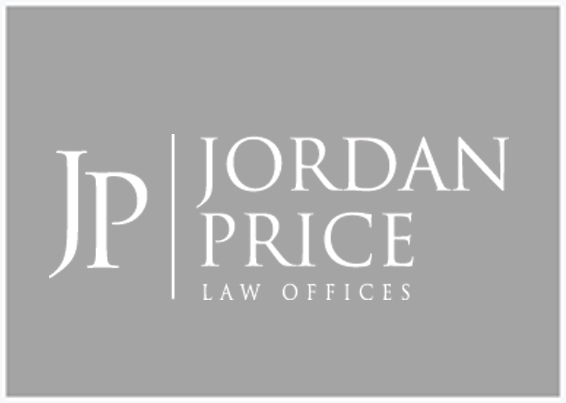In our February blog, we explored the various nuances of the Corporate Transparency Act (the “CTA”) as it applies to businesses or entities formed prior to 2024 and during 2024; however, there are more nuances to the CTA regarding Homeowners Associations. Further, the CTA has since been challenged in federal court in Alabama, which resulted in an interesting ruling from the bench.
The First Challenge to the CTA: Unconstitutional?
First and foremost, the United States District Court for the Northern District of Alabama heard the case of National Small Business Association v. Yellen on the challenge of the constitutionality of the CTA’s application to the plaintiffs in November of 2023.[1] The Plaintiffs challenged the Act in a motion for summary judgment claiming that “the mandatory disclosure requirements exceed Congress’ authority under Article I of the Constitution and violates the First, Fourth, Fifth, Ninth, and Tenth Amendments.” (pg. 4). The government filed a motion to dismiss the case arguing that “the CTA falls within the ambit of the Commerce, Taxing, and Necessary and Proper Clauses[.]” (pg. 9).
After a lengthy discussion of Congress’ rights and powers under these clauses, the court determined that the CTA was unconstitutional because it could not be “justified as an exercise of Congress’ enumerated powers.” (pg. 52). There was no discussion regarding whether the CTA violates the First, Fourth, and Fifth Amendments. Most importantly, this ruling is only applicable to the specific set of Plaintiffs that brought the case and were members of the National Small Business Association as of the date of the decision by the federal court. Therefore, it changes nothing for businesses, entities, or Homeowners Associations regarding the filing requirements. It could, however, be one of many challenges to the CTA over the course of the coming year.
CTA as it applies to Homeowners Associations and Management Companies
As previously discussed, there are currently 23 kinds of entities that are exempt from the reporting requirements under the CTA. For Management Companies and Homeowners Associations the two exemptions of relevancy are (1) the large corporation exemption and (2) the charitable entity exemption. For management companies, only a select few will qualify under the large corporation exemption. To fall under this exemption, the corporation must have more than 20 employees AND be able to show receipts and sales of gross revenue in excess of $5 million dollars in the preceding year. If the Management Company does not satisfy both requirements, then the entity is not exempt from the reporting requirements.
Homeowners Associations are considered non-profit organizations, but under the CTA, the only exempt charitable organizations are those that fall under 501(c) and 501(a) of the Internal Revenue Code. Homeowners Associations can be formed under 501(c)(4), but there are severe restrictions on qualifying as a non-profit under this provision. In this section, a Homeowners Association is required to be operated exclusively for the promotion of social welfare by promoting the common good and general welfare of the people of the community.[2] Community, in this instance, is referring to the community at large; not just those that are members of the Homeowners Association. Therefore, most Homeowners Associations do not fall under this provision.
Homeowners Associations can also be formed under 501(c)(7).[3] In order to qualify as a non-profit under this provision, the homeowners association’s primary function must be to own and maintain certain recreational areas and facilities such that it can elect exemption as a social club. Homeowners associations will not qualify for exemption under 501(c)(7) if the association owns and maintains residential properties that are not part of its social facilities or enforces covenants for the preservation of certain architecture or appearance of the housing developments. Therefore, most HOAs do not fall under this provision. Therefore, this disqualifies most, if not all, homeowners associations.
Thus, Homeowners Associations are generally formed under § 528 of the Code, which allows for a percentage of the association’s income to be taxed. This provision is broader and more lenient on the qualifications of the association as a non-profit; however, entities formed under § 528 are not exempt under the CTA. Therefore, Homeowners Associations must be prepared to file Beneficial Ownership Information.
As mentioned previously in February, beneficial owners are those who exercise substantial control over a reporting company, or those who own or control at least twenty-five percent (25%) of the ownership interests of a reporting company. Therefore, beneficial owners for Homeowners Associations are those serving on the Board of Directors, On-Site Property Managers, Declarants or owners who have 25% or more of the voting power based on lots they own within the community, and any other person who has substantial influence or control over important decisions of the Homeowners Association. If your Homeowners Association is self-managed, then the beneficial owners will exclude on-site property manager information. These individuals must submit their beneficial ownership information to FinCEN based on the requisite timelines.
All in all, the CTA simply institutes a reporting requirement for entities that do not fall within the 23 exemptions to date. While the case from Alabama is only binding on a limited group, it is possible the case will be appealed and the ruling expanded by a larger federal court. As mentioned above, it is the first of what is believed to be a series of challenges to the CTA. Until that occurs, though, all entities not within the National Small Business Association must comply with the filing requirements.[4]
Please do not hesitate to reach out with any questions about the CTA as it applies to homeowners associations or management companies, and we will keep up to date on any further challenges or changes that occur as the year progresses.
4892-9143-2625, v. 2
[1] https://storage.courtlistener.com/recap/gov.uscourts.alnd.183445/gov.uscourts.alnd.183445.51.0.pdf
[2] https://www.irs.gov/government-entities/irc-section-501c4-homeowners-associations
[3] https://www.irs.gov/pub/irs-tege/eotopicr82.pdf
[4] Joining the NSBA now will not provide an exemption. The case and ruling are limited to those that were part of the group at the time of the ruling.
